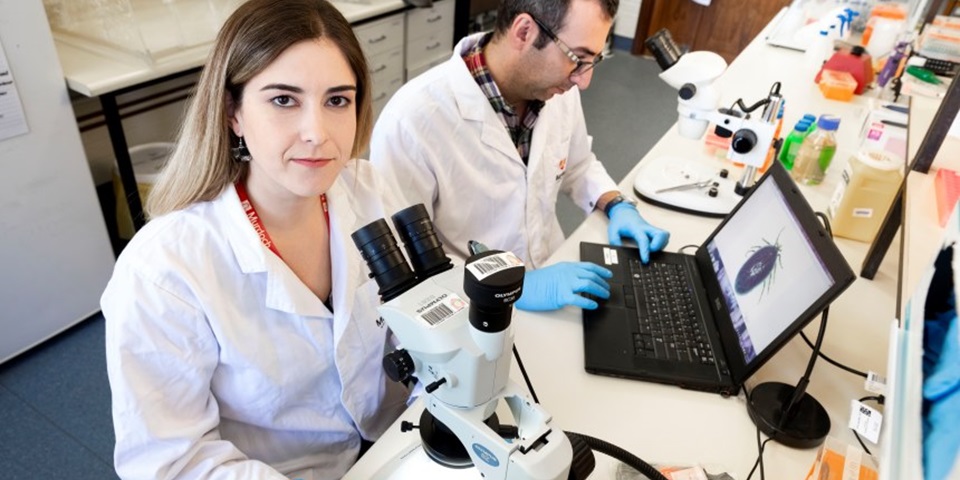News
New research to help solve tick illness mystery

The mystery surrounding the illness associated with tick bites in Australia could soon end thanks to a ground-breaking new study led by Murdoch University researchers.
The National Health and Medical Research Council (NHMRC) will provide $1.9 million to fund the four-year collaborative project based at Murdoch University. It will aim to identify the causes of an illness currently known as DSCATT (Debilitating Symptom Complexes Attributed To Ticks) and previously described as a Lyme-like disease.
In recent years, thousands of Australians have reported suffering from chronic symptoms which include skin issues, muscle and bone pain, fatigue, neurological and cardiac abnormalities, thought to be a consequence of tick bite. But the true scale of the issue is difficult to estimate because so little is known about the illness.
Murdoch University researchers, led by Professor Peter Irwin, Professor Una Ryan and Dr Charlotte Oskam, have discovered new microorganisms in ticks collected from animals in Australia. But whether these bugs can cause chronic debilitating symptoms in humans is yet to be determined.
“Our analyses over the last four years strongly suggest there are organisms in ticks that might cause tick borne disease in Australia,” Professor Irwin said.
“If infectious disease contributes to DSCATT, this project will identify the tick-transmitted organism(s) responsible. However, we are keeping an open mind about its possible cause, so our research will examine the patient’s response to tick bite in several different ways.
“The incidence and geographical distribution of DSCATT and the physical, immunological and psychological impacts on patients will also be revealed by the study.
“Most importantly for the many thousands of sufferers around Australia, understanding the cause or causes is the first step towards informing management and treatment decisions in the future.”
The research will also provide evidence to assist with the proper diagnosis of patients presenting with DSCATT and provide data on the spectrum of DSCATT symptoms.
The research team will study the blood samples, skin biopsies and ticks collected from patients who present to emergency departments and GP clinics with tick bites across Australia over the next three years. Results will be compared with those from patients from two control groups.
No evidence of Lyme disease
The team at Murdoch’s Vector and Waterborne Pathogens Research Group have been studying tick-associated infections in Australia since 2013. They have advised the Chief Medical Officer and two government inquiries into Lyme-like disease in Australia.
No evidence of bacteria causing Lyme disease has been found in Australian ticks by Professor Irwin and his team.
Murdoch University Vice Chancellor Professor Eeva Leinonen congratulated the researchers on winning the funding.
“This project will begin to answer many of the community’s unanswered questions related to this devastating illness,” Professor Leinonen said.
“Murdoch University is committed to tackling health challenges in its research and this major funding is the result of many years of dedicated and painstaking study of ticks and tick-borne infections by Professor Irwin and his team.”
The study will be a multi-institutional project involving Western Australia, Victoria, New South Wales and Queensland.
News
New research to help solve tick illness mystery
Posted on
Topics